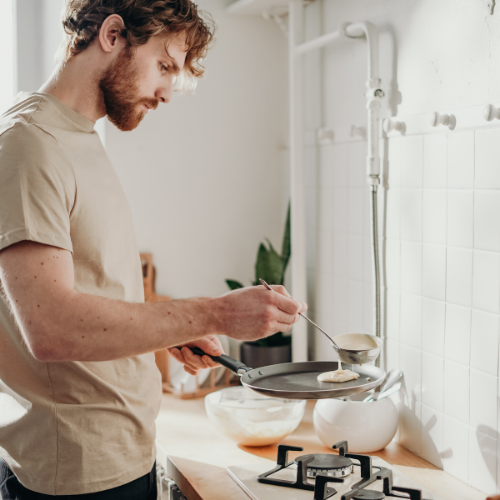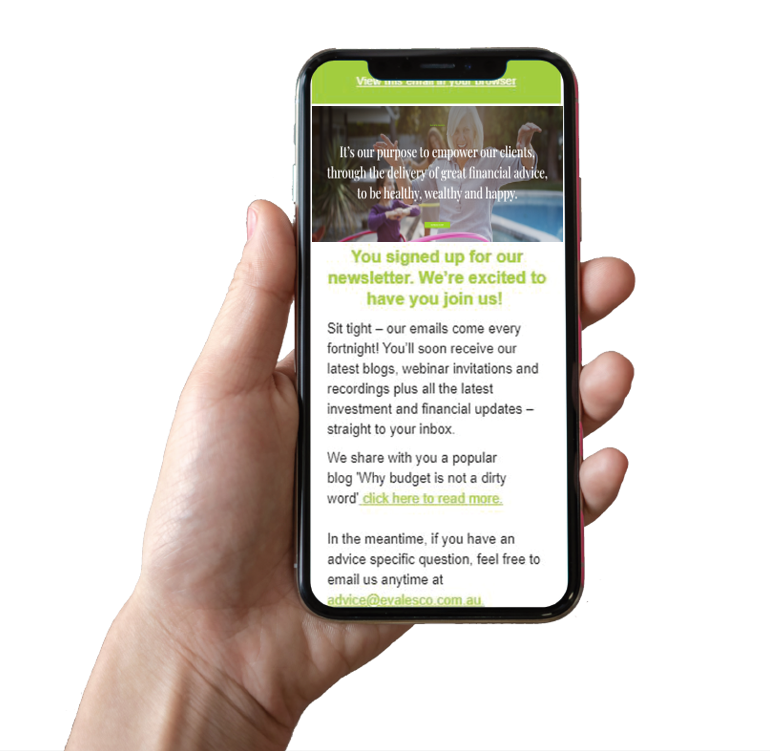Schedule a Chat
Contact Info
Suite 17.03, Level 17
20 Bond Street
Sydney NSW 2000

INSIGHTS WITH EVALESCO
TOPICS DISCUSSED
Spending habits & how to save during COVID-19
One of the fundamentals to financial success is mastering the act of spending less than what you earn. We share some of the spending habits of Sydneysiders, how many of us are utilising our time during COVID-19 and how to save and take charge of your current cashflow situation.
Spending habits in high income suburbs of Sydney have plummeted whilst the less well-off are spending what they earn, supported by the Government stimulus packages. When you earn more, it can be easier to reduce spending, however there is an expectation that overall there will be a rise in bad debts and a large economic stress in the next few months.
*Statistics created by AlphaBeta (part of Accenture) 27 April 2020
First step for everyone – now is a good time for a new budget.
As your lifestyle may be changed due to social distancing it is a perfect time to find out where your money is going. Budgeting gives you the opportunity to review expenses, and often save money on the ‘fixed’ unavoidable expenses (such as home loan interest, insurances, phone plans, etc) and more importantly, can also often reveal surplus money that could be used for wealth creation rather than just ‘disappearing’ through unconscious spending.
There are some basic fundamentals that you need in place to start building wealth. A good first step would be to get a basic understanding of what’s coming in and what’s going out and try to ensure there’s some money left at the end of the day. With your newfound surplus of cash now that gyms are closed, you maybe aren’t commuting to work, and you aren’t going out to social events, can this extra savings go into your super or an investment?
A question to think about is how you can continue your good spending habits when everything is back to normal after COVID-19. Read more about budgeting on our blog here.
How to best take charge of your cashflow?
Not all Australians have been impacted financially by this pandemic, therefore if you have not experienced a drop in cashflow a few things to think about is have you got enough cash reserves in place to last a few months and can you build these up to 3-6 months of living expenses?
Some ways can be by replacing paid activities with free ones, your keeping up your physical activity while adding to your savings. Since gyms have closed down you can still workout using their free online portals, plus when you want to mix it up Instagram is a great source for some quick 30-minute videos with and without equipment.
When cooking for yourself or the entire household try making additional meals and freeze the leftovers. It reduces the number of visits to the grocery store and can save you money by buying less ingredients for the week. Read more about our savings hacks on our blog here.
If you have experienced a significant drop in cashflow and you have a home loan to think about you can maximise your offset and redraw options available to you. There is the option to request an interest rate review or as a last resort you could defer repayments as you will be capitalising the interest.
The NSW government has introduced measures to help landlords and residential tenants work together during the COVID-19 pandemic. If you are renting you have the option to discuss with your landlord if you can reduce your rent (or suspend payments if you have no other option). Read more in our rent relief blog here.
If you need help with your savings and cashflow please contact your adviser and give us a call on 9232 6800. We’re always here to help.
SHARE OUR INSIGHTS
Share on Facebook
Share on Email
Share on Linkedin

NEWSLETTER

Evalesco Financial Services Level 17, 20 Bond Street Sydney NSW 2000
Phone: (02) 9232 6800
The information provided on and made available through this website does not constitute financial product advice. The information is of a general nature only and does not take into account your individual objectives, financial situation or needs. It should not be used, relied upon, or treated as a substitute for specific professional advice. We recommend that you obtain your own independent professional advice before making any decision in relation to your particular requirements or circumstances. Evalesco Financial Services do not warrant the accuracy, completeness or currency of the information provided on and made available through this website. Past performance of any product discussed on this website is not indicative of future performance. Copyright © 2019 Evalesco Financial Services. All rights reserved